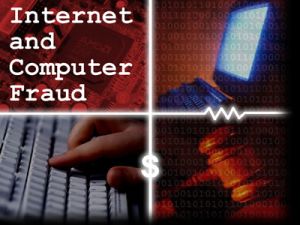Law Watch
Need a Cyber crime tribunal
Shakhawat Hossain Shamim
 Today's world is cyber world. Computer and internet have become an integral part of the daily life. The numbers of netizens are increased in every minute and at the same time it creates an opportunity to misuse the technology in the cyberspace which gave birth to cyber crimes at the domestic and international level. Though the word crime carries its general meaning as 'a legal wrong that can be followed by criminal proceedings which may result into punishment' Whereas cyber crime may be 'unlawful acts wherein the computer is either a tool or target or both'.
Today's world is cyber world. Computer and internet have become an integral part of the daily life. The numbers of netizens are increased in every minute and at the same time it creates an opportunity to misuse the technology in the cyberspace which gave birth to cyber crimes at the domestic and international level. Though the word crime carries its general meaning as 'a legal wrong that can be followed by criminal proceedings which may result into punishment' Whereas cyber crime may be 'unlawful acts wherein the computer is either a tool or target or both'.
The world first computer specific law enacted in the year 1970 by the German State of hesse in the form of 'Data Protection Act' 1970 with the advancement of cyber technology with the emergence of technology. The misuse of technology has also expanded to its optimum level and then arises a need of strict statutory laws to regulate the criminal activities in the cyber world and to protect technological advancement system. It is under these circumstances Indian Parliament passed its 'Information Technology Act, 2000' to deal with the technology in the field of e-commerce, e-government, e-banking as well as penalties and punishment in the field of cyber crimes.
Although its little bit late, but still it sounds good as the parliament of Bangladesh enacted 'Information and Communication Technology (ICT) Act' in 2006. The Act mainly focused on digital signature, electronic record, types of offence and penalties. Section 68 of the said Act provides for the formation of cyber crime tribunal and cyber appellate tribunal. But unfortunately, such cyber crime tribunal has not yet been formed. More than six years has gone and so far Bangladesh has faced several cyber crime incidents. Several times threatening to the Prime Minister through email. In 2008, a Bangladeshi hacker named shahi mirza hacked RAB and Bangladesh Army website. Mahbub Saroar, an analyst of premium Bank Brokerage house, decayed the transaction report of Dhaka Stock Exchange through hacking. Even cyber criminals uploaded porno movies in the website of Bangladesh National Parliament and website of Jamate Islam Bangladesh. Ex-boyfriend of a TV actress uploaded sex videos in the internet etc.
Most recently, skype conversation between the chairman of international crimes tribunal 1 and his friend has hacked and it published in the daily newspaper. Now it's high time to rethink and be aware about the cyber crime more seriously and it's becomes demand of time to set up cyber crime tribunal immediately. Because we need to realize such type of cyber crimes in Bangladesh still is in primary stage. Unlike the traditional criminals, cyber criminals are sufficiently educated and highly specialized in computer system and networking. In the close future, then can crack any individuals or companies bank account and make it empty, steal valuable data and information and even then can steal any national confidential plan or policy.
So far we don't have any statistics about cyber crimes regarding monetary loss due to cyber criminality but According to the US Internet Crime Complaint Center statistics, in 2001 the dollar loss of reported cyber crime was only $17.8 million dollars. But this amount, in 2009, reached at $559.7million dollars. Yet, it is a small portion of the actual loss of money as only 15 percent of cases of cyber fraud are being reported to crime control agencies.
To control the cyber criminals many police agencies set up special units across the world. Now virtual police stations are common in many countries. Recently our neighboring Indian state, west Bengal started the functioning of a cyber police station. Though computer is becoming a common household item and the number of Internet users has already crossed six millions, very few computer related offences are reported to the police. As our police have not been furnished with modern techniques and technology to investigate even traditional crimes, we cannot expect them to acquire the necessary skills to investigate the most complicated hi-tech computer related crimes.
Present ICT Act provides highest punishment for the cyber crime up to 10 years of imprisonment or a maximum fine of ten million Taka or with the both. But the legislation may not be sufficient to effectively fight cyber crime. For, the offences under this act are non-cognizable. That is, the police shall not arrest the alleged offenders without a warrant of arrest. The non-cognizability of an offence gives the perpetrators an upper hand over the victims.
Thus, despite the immediate formation of cyber crimes tribunal, to meet the upcoming cyber crimes situation we need to think about a more strengthen cyber crime law. Many of cyber crimes has not covered by the present law.
The writer is Senior Lecturer, Department of Law, BGC Trust University Chittagong.